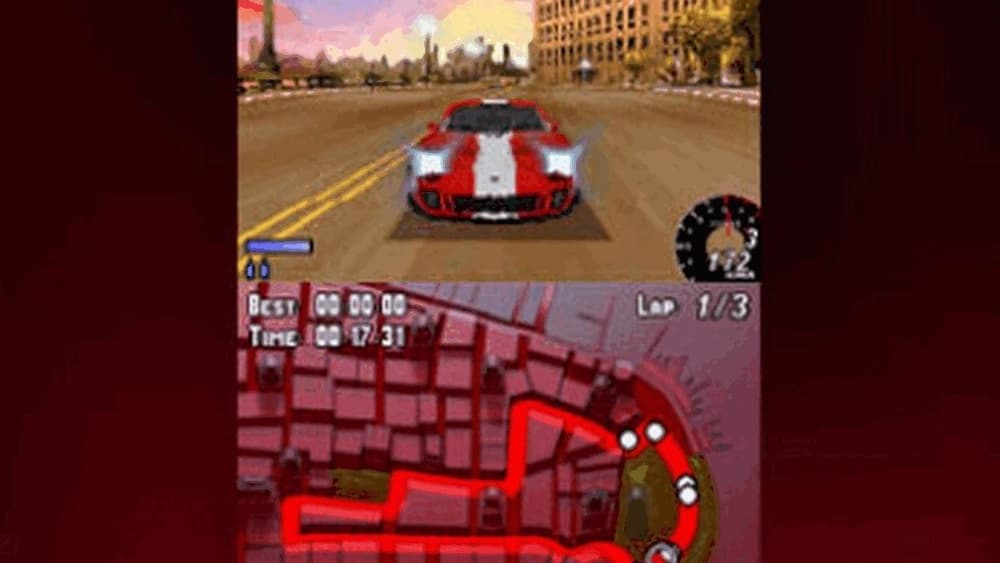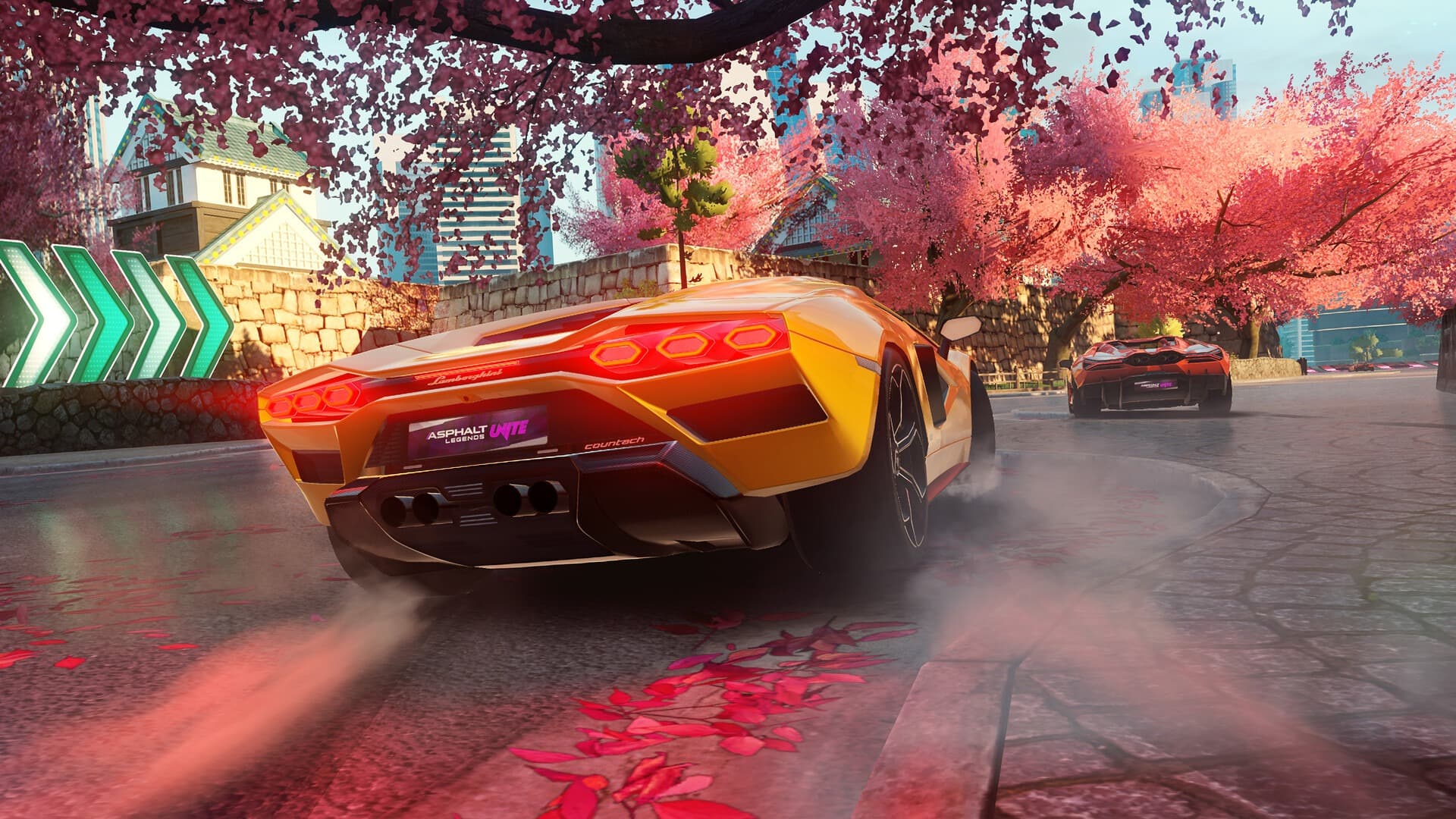"Asphalt" turns 20: How Gameloft's racing game became a must-have on mobile (and console)

When Asphalt: Urban GT was released in 2005 on N-Gage and Nintendo DS, Gameloft was still owned by Ubisoft . At the time, the publisher specialized in ports of its owner's licenses, but also offered some original creations, including Asphalt . This one presented itself as a cheap Need for Speed , but which had the capacity to run on platforms where the Electronic Arts franchise was not.
You may already know what happens next: no fewer than 17 episodes will be released over 20 years. Gameloft will offer its series on numerous platforms, ranging from N-Gage to Symbian, to Windows Phone, Blackberry , Playstation Vita, and most recently on Nintendo Switch, Xbox Series, PC and Playstation 5.
Asphalt has had more than one life, as Raùl Orrego, game manager at Gameloft, confirms to Tech&Co: " Asphalt was also released on Java, so we had to work on black and white screens with only 32KB of data. It was a really different time - the development team was much smaller and the games evolved much faster."

It was the players' attraction to street racing, popularized by Need for Speed Underground in 2003, that pushed Gameloft to embark on an adventure that, 20 years later, still has its many fans.
“In terms of platforms, we went from Java phones to state-of-the-art PCs and home consoles in 20 years. Asphalt quickly established itself as a series with impressive graphics on mobile, so we had to stay at the forefront,” recalls Raùl Orrego.
At first, the episodes multiplied for essentially technical reasons: "We had to make a lot of effort to follow the technical progress of mobile devices, it was really important for us."
He believes that the main objective is to create a "wow effect", otherwise, "we have to start from scratch".
Two decades later, Gameloft is proud to say that Asphalt is used in smartphone tests to demonstrate their technical power: "The game's visual fidelity serves as a showcase for high-end devices."
The game that changed everything, however, was Asphalt 4: Elite Racing . Launched in 2008, it was the first in the series to be released on iPhone. The success of Apple's App Store allowed the franchise to take off to unprecedented levels for Gameloft.
“The mobile gaming industry only took shape with the arrival of smartphones, and the iPhone was the real catalyst,” says Raùl Orrego. “The technological advances linked to the iPhone opened up new possibilities.”
Asphalt 5 followed, taking a particularly impressive technical turn (for the time), despite a quick release compared to the previous opus: "There's only a year between the two, it feels like a leap of a console generation, or even two," explains the game manager. "Early adopting new technologies and pushing the limits of devices necessarily puts you in a leading position in a genre, especially when they turn out to be very powerful and widely sold."

Raùl Orrego also recalls that Asphalt was initially designed to offer "console-quality gaming on portable devices," all within an ultra-fragmented market.
With this expertise, Gameloft will adopt an increasingly important diversification strategy: "Over time, as technology progressed and Asphalt asserted its identity as an arcade racing game, it became clear that the latest games offered an experience that also had its place on consoles and PC."
Without ever seeking to compete with the big names in the genre, but also with simulations, Asphalt therefore forged its own path, and in 2018 offered Asphalt 9: Legends , since renamed Asphalt Legends .
This is the first game in the franchise to be released on Switch, Xbox, and PlayStation. Designed as a free-to-play game (free, but with microtransactions), the game is now being developed as a "game-as-a-service" with regular updates, one of which, still ongoing, is for the franchise's 20th anniversary.
“Today, console and PC players represent approximately half of the Asphalt Legends player base, and this proportion has steadily increased in recent years.”

For Raùl Orrego, Gameloft chose to offer a multi-platform and cross-platform experience, where the player's data follows them wherever they want to go. "You can do a few races on your phone on the bus or during your lunch break, then continue your challenges on the big screen thanks to your console, without ever losing your progress," emphasizes Raùl Orrego. Development is also unified, after having been, for a time, separate.
This is also why Asphalt , once known for regularly releasing new episodes, has been relying on Asphalt Legends since 2018: "We removed the number from the title because Asphalt Legends is here to stay. We have a long-term roadmap, and there are still a lot of things we want to do."
Twenty years after its debut, the Asphalt franchise is still as popular as ever. With 1.5 billion downloads since its launch, it has reached a particularly large number of players: "The games have been played by hundreds of millions of people worldwide, on almost every platform. That's a lot of people to fit into a single box," says Raùl Orrego when asked about the typical player profile.
"We do know that our players are a little younger than the average racing game fan. They are mostly young adults, mainly men, who have a passion for cars that goes well beyond racing," he explains. This is probably why special care was taken in modeling the vehicles:
"If a hubcap nut isn't exactly the right shade of chrome, our players will notice," jokes Raùl Orrego.
Going forward, Gameloft says it wants to "remain demanding" while continuing to "push the boundaries." This is a prospect that can only delight Asphalt fans, who already see themselves exploring its universe on mixed reality headsets.
BFM TV



